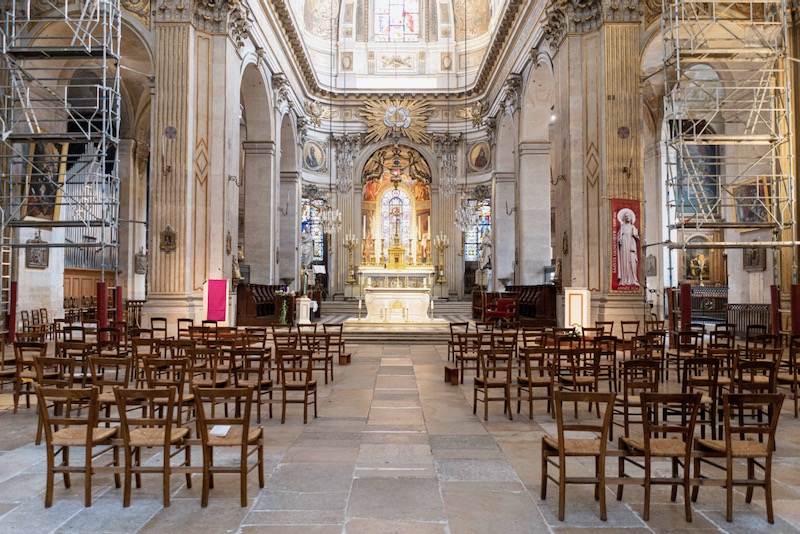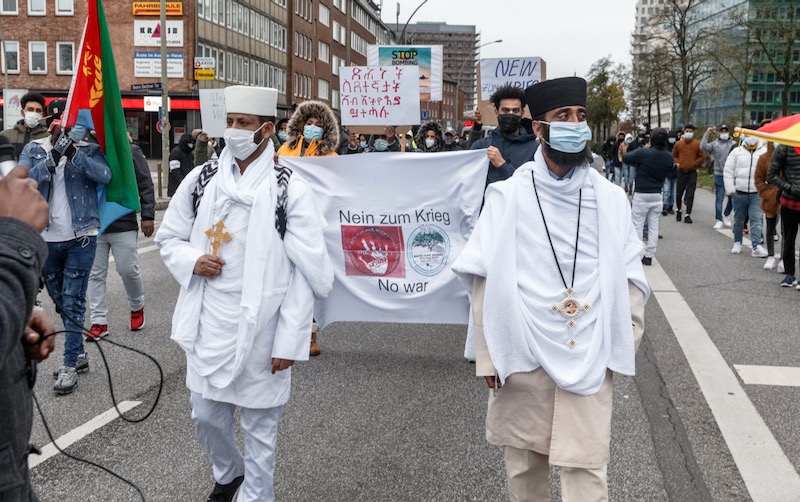Refugees fleeing from Tigray to Sudan over the past month of fighting are experiencing terrible hardship and are suffering “the shocks and trauma of war”, according to Ethiopia’s Justice and Peace Commission.
The commission said: “Some have to walk for 10 days to reach Sudan, with mothers carrying babies crying due to hunger and thirst, filled with fear of the unknown.” Yet, it added, that those who stay behind are facing the risk of an imminent famine since food is scarce in the region due to droughts and locust swarms, and there are now blockages to food and fuel supplies caused by conflict.
“It is painful to hear such stories in the modern era,” said the Commission. Since 4 November, more than 45,000 refugees have fled into Sudan, according to the UNHCR, but it is thought that one million people are displaced within Tigray.
Pope Francis and the Bishops of Ethiopia and of Eritrea have all expressed their deep sadness over the escalating conflict between Ethiopia’s federal government and the regional government of Tigray state.
As the humanitarian crisis unfolded on 27 November the Conference of European Justice and Peace Commissions called on the international community, including the European Union, to actively contribute to peace negotiations and to facilitate humanitarian corridors to allow unhindered delivery of assistance to more than four million people in urgent need. Hospitals and health centres in Tigray were running “dangerously low” on medical supplies, according to the Red Cross. The conflict has prompted fears of regional destabilisation and even civil war.
UN officials reported on 4 December that there was still no access to the Tigray region, despite a deal to allow unimpeded humanitarian access to government-controlled areas. The military entered the regional capital Mekelle last weekend and said the month-long conflict with forces of the Tigray People's Liberation Front (TPLF) was over. Yet, fighting has been continuing around Makelle’s outskirts and elsewhere.
Trucks loaded with basic materials, such as food, sanitary gloves and body bags, remain blocked at the borders of Tigray. Among the humanitarian agencies on the front lines is Catholic Relief Services, a charitable agency of the United States Bishops' Conference.
In the latest reports, among those in need of urgent aid are some 96,000 refugees who fled persecution and compulsory military service in neighbouring Eritrea and who have been living in camps in Tigray. Their camps are running out of food and there are also unconfirmed reports of attacks and abductions.
“Apart from armed clashes,” reports Fr Mussie Zerai, an Eritrean priest supporting Eritrean refugees, “two threats are looming in the refugee camps: that of forced repatriation to Eritrea and enormous livelihood difficulties due to the sudden interruption of all forms of assistance and supplies, including the most essential goods.”
Fr Mussie called for urgent international interventions, particularly from the United Nations, the African Union, and the European Union, “to organise humanitarian channels that allow the transfer to other states of the thousands of refugees who have found themselves involved in the war against their will; and to immediately reopen the borders of Tigray to humanitarian aid.”



 Loading ...
Loading ...